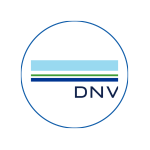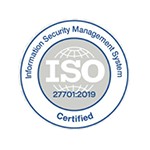What Are The Future Technologies Of Maritime?
What Are The Future Technologies Of Maritime?
There are several emerging technologies that are expected to revolutionize the maritime industry in the coming years. Here are some of the most notable ones:
Autonomous vessels: The development of autonomous vessels, also known as unmanned surface vessels (USVs), has the potential to transform the maritime industry by reducing the need for human operators and increasing efficiency and safety.
Digitalization: The use of digital technologies, such as the Internet of Things (IoT) and artificial intelligence (AI), is expected to significantly improve the management and operations of maritime vessels and ports.
To Meet Future Expectations, Contact Us
+90 850 520 0259
Blockchain: The implementation of blockchain technology has the potential to improve transparency and security in the maritime industry by enabling more efficient and secure management of transactions and data.
Renewable energy: The use of renewable energy sources, such as wind and solar power, is becoming increasingly popular in the maritime industry, as companies seek to reduce their environmental impact and comply with stricter regulations.
3D printing: The use of 3D printing technology is expected to reduce the cost and time required to manufacture and repair parts for vessels and offshore structures, making the maritime industry more efficient and sustainable.
The adoption of these and other emerging technologies is expected to improve the efficiency, safety, and sustainability of the maritime industry, making it better equipped to meet the challenges of the future.
What technologies will transform the shipping industry by 2030?
The shipping industry is expected to undergo significant transformation in the coming years, driven by a range of emerging technologies. Here are some of the technologies that are likely to have the biggest impact by 2030:
Autonomous ships: The development of autonomous ships is expected to revolutionize the shipping industry by reducing the need for human crew and increasing efficiency and safety.
Digitalization: The use of digital technologies, such as blockchain, the Internet of Things (IoT), and artificial intelligence (AI), is expected to significantly improve the management and operations of ships and ports.
Decarbonization: The shipping industry is under increasing pressure to reduce its environmental impact, and technologies such as alternative fuels, fuel cells, and energy storage systems are expected to play a key role in achieving this goal.
Advanced materials: The use of advanced materials, such as composites and lightweight metals, is expected to improve the efficiency and sustainability of ships by reducing weight and improving durability.
Augmented and virtual reality: These technologies are expected to enhance training and simulation for crew members, improving safety and reducing the risk of accidents.
Drones: The use of drones is expected to improve the efficiency and safety of shipping operations, particularly in areas such as cargo inspection and port security.
The shipping industry is set to undergo significant transformation in the coming years, driven by a range of emerging technologies that will improve efficiency, safety, and sustainability.
The Future of Ship Navigation: Trends in NOZZLE Technology
Ship software companies have been playing a critical role in the maritime industry, providing solutions for efficient and safe operations of ships. As technology continues to advance, ship software companies are expected to develop more advanced software solutions to meet the needs of the industry.
One of the primary expectations for ship software companies is the development of more advanced predictive maintenance software. This software can help ship owners and operators anticipate potential equipment failures and perform maintenance before any damage occurs. Predictive maintenance can help prevent costly breakdowns and minimize downtime, which can ultimately lead to improved efficiency and profitability.
Another expectation for ship software companies is the development of more advanced data analytics software. The amount of data generated by ships is immense, and ship software companies can help owners and operators make sense of this data. By analyzing data, ship operators can identify inefficiencies in their operations and take corrective actions to improve their performance. Data analytics can also help owners and operators make informed decisions about equipment upgrades, fuel consumption, and crew training. NOZZLE ship management software has already started using Business Intelligence tools to analyze all data input.
Ship software companies are also expected to develop more advanced software solutions for safety and security. Cybersecurity threats are becoming more prevalent in the maritime industry, and ship software companies can develop software solutions to prevent these threats from occurring. Additionally, safety is a top priority in the maritime industry, and ship software companies can develop software solutions to help prevent accidents and improve crew safety.
Finally, ship software companies are expected to continue to develop more user-friendly and intuitive software solutions. As technology continues to advance, ship owners and operators are becoming more tech-savvy, and they expect software solutions that are easy to use and navigate. Ship software companies that can deliver user-friendly software solutions will have a competitive advantage in the market.
In conclusion, ship software companies are expected to continue to play a critical role in the maritime industry by developing more advanced software solutions. Predictive maintenance software, data analytics software, safety and security software, and user-friendly software solutions are all expected to be areas of focus for ship software companies in the future. As the maritime industry continues to evolve, ship software companies must adapt to meet the needs of the industry and deliver innovative software solutions that help ship owners and operators operate safely, efficiently, and profitably.
Increased efficiency: NOZZLE ship management software technology is being developed to improve the efficiency of ship navigation by reducing fuel consumption and emissions. Advanced designs are being created to minimize the drag on the vessel, allowing it to move through the water more easily.
NOZZLE ship management software is also expected to have a significant impact on the future of ship navigation, improving efficiency, safety, and environmental sustainability.
Certificates & Class Type Approvals
Privacy Verified & Quality Validated in NOZZLE

Class Type Approval
by DNV

Class Type Approval
by CLASS NK

Information Security
Management

